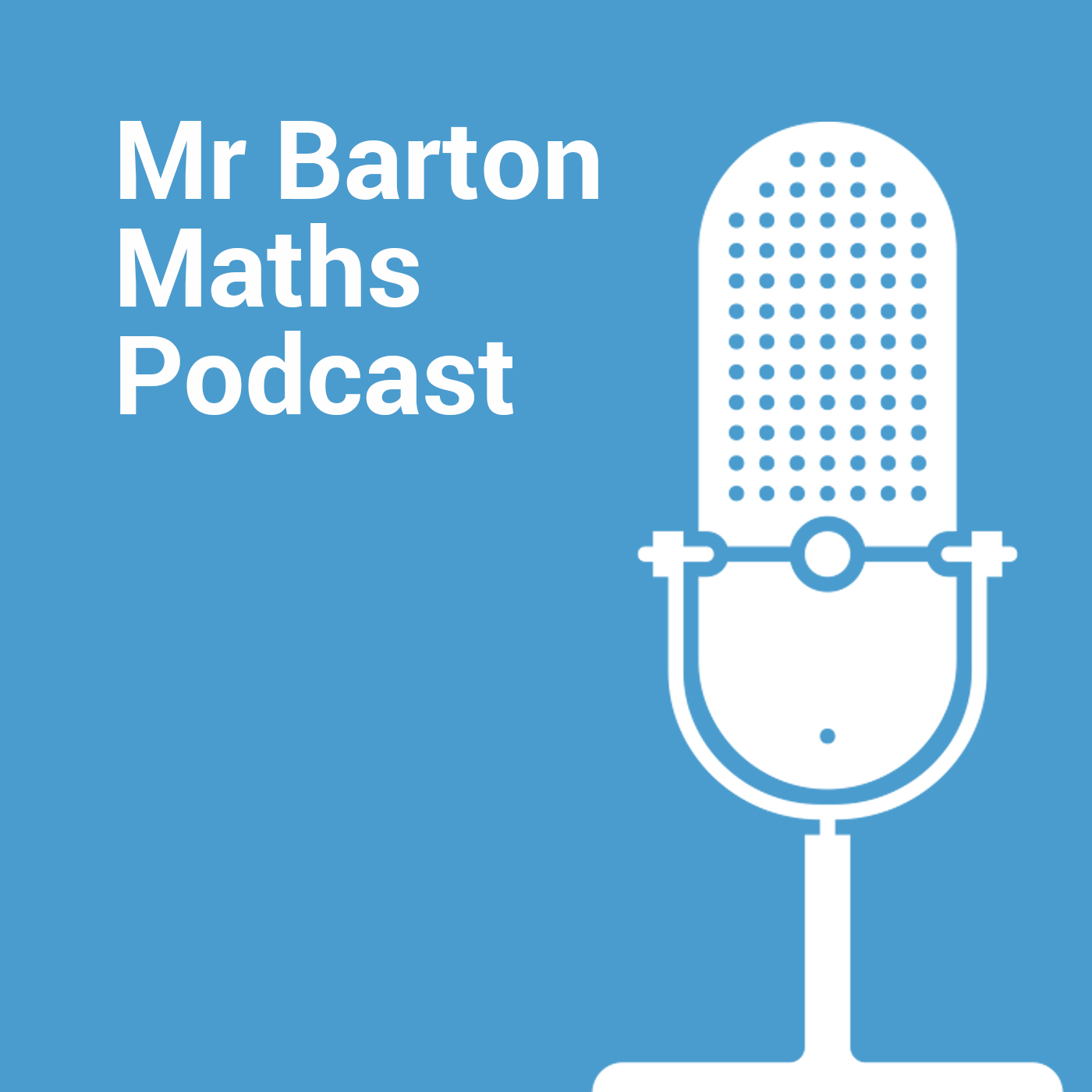
Craig Barton interviews guests from the wonderful world of education about their approaches to teaching, educational research and more. All show notes, resources and videos here: https://www.mrbartonmaths.com/blog/
Anne Watson and Kris Boulton join me to discuss their answers to 8 big questions in maths education:
1. What do you see as the goals of mathematics education?
2. What does it mean to “be fluent” in something in mathematics, and is fluency important?
3. What does it mean to “understand” something in mathematics, and is understanding important?
4. Please tell us about one of your favourite maths resources/activities. Why do you like it?
5. What do you see as the key similarities and differences between variation theory and Engelmann’s approach to direct instruction?
6. Is the distinction between a “novice” and an “expert” a useful one? If not, why not? If so, how might we tell if a student has moved from being one to being the other?
7. What – if anything – are the most important things for teachers to know and implement from cognitive science research?
8. What is an example of something important that you have changed your mind about?
You can access all the links on the episode show notes page here: http://www.mrbartonmaths.com/blog/anne-watson-and-kris-boulton-in-conversation/

***
This episode of the Mr Barton Maths Podcast is kindly supported by SchoolExams.
’If you are interested in obtaining fully funded access to Schoolexams for your key year groups just send an email to info@schoolexams.co.uk or visit schoolexams.co.uk/apply-for-fully-funded-pay-it-forward-licences/
***
Hello, and welcome to another episode of the Mr Barton Maths Podcast, with me Craig Barton.
This time around you are getting two world class guests for the price of one as I am delighted to welcome both Anne Watson and Kris Boulton to the show.
So, how did I manage to land these two educational giants on the same show? Well, it all started with an email exchange between me and Anne where we were discussing our views on fluency. During this Anne happened to mention that she had been chatting to Kris and that they would like to both come on my show together. I could not have replied with a “yes please” any quicker.
I then set about devising a set of questions that I felt would make for the most positive and interesting conversation between these two intellectual heavyweights. Anne had some suggestions, I had some myself, and Twitter had a few too. In the end I whittled 30+ down to 8.
So, here are the questions I put to Anne and Kris:
- What do you see as the goals of mathematics education?
- What does it mean to “be fluent” in something in mathematics, and is fluency important?
- What does it mean to “understand” something in mathematics, and is understanding important?
- Please tell us about one of your favourite maths resources/activities. Why do you like it?
- What do you see as the key similarities and differences between variation theory and Engelmann’s approach to direct instruction?
- Is the distinction between a “novice” and an “expert” a useful one? If not, why not? If so, how might we tell if a student has moved from being one to being the other?
- What – if anything – are the most important things for teachers to know and implement from cognitive science research?
- What is an example of something important that you have changed your mind about?
Now – foolishly – I had set aside 2 hours to get through these. Around 3.5 hours later, we had just about finished. I am very much a bystander in this conversation. I thought the most useful thing I could do was to ask the questions and then get out of the way, simply sitting back and learning from two people who know far more about maths education than me, and who can articulate their views and reasons with admirable clarity.
Do Anne and Kris agree on everything? Of course not! But it is perhaps the areas that they do agree upon that listeners – if you are anything like me – will find the most interesting.
If you need to, you can download an mp3 version of the podcast here (but most podcast providers give you the option to download for offline listening)
On Twitter, Anne is: @annemathswatson
On Twitter, Kris is: @Kris_Boulton
Links to things discussed in the show:
- The task design pdf Anne spoke about can be downloaded here
- Movshovits-Hadar, N. (1988). School mathematics theorems: An endless source of surprise
- Applying Cognitive Science to Education
- Reconceptualizing Procedural Knowledge
- The work of Patricio Herbst
- Eudoxus’ ladder
- Richard Feynman on Why He Can’t Tell You How Magnets Work
My usual plugs:
- You can help support the podcast (and get an interactive transcript of all new episodes) via my Patreon page at patreon.com/mrbartonmaths
- If you are interested in sponsoring an episode of the show, then please visit this page
- You can sign up for my free Tips for Teachers newsletter and my free Eedi newsletter
- My online courses are here: craigbarton.podia.com
- My books are “Tips for Teachers“, “Reflect, Expect, Check, Explain” and “How I wish I’d taught maths”
